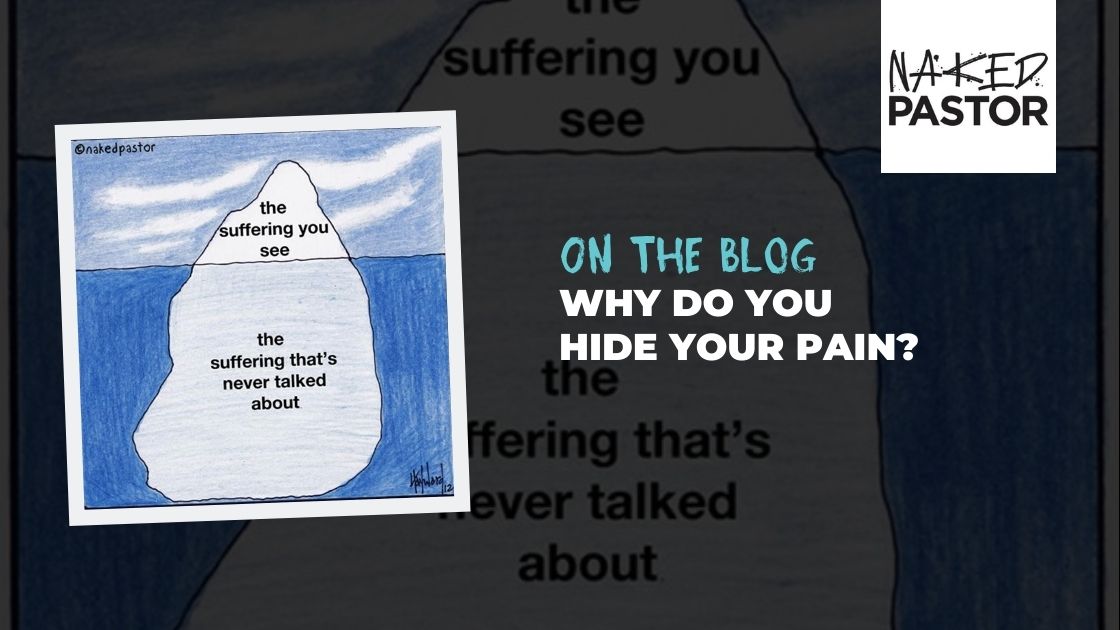We all carry pain, but so much of it stays hidden. Like an iceberg, only a fraction is visible—the rest lies beneath the surface, unseen and unspoken. Why do we do this? Why do we hide our pain, even when it’s crushing us?

As a pastor, I’ve sat with countless people who smiled on the outside but were breaking on the inside. They were experts at keeping their pain a secret, but the cost was immense: isolation, loneliness, and a lack of support. So, why do we hide our pain? And what would happen if we stopped?
Here’s a list of possibilities. Maybe one of them is why you hide yours. Maybe all ten.
Tell me why you hide your pain in the comments. At the end I’ll tell you the main reason I hide my pain.
- You are ashamed because you think it makes you look weak.
- You don’t want people to think you aren’t getting over it fast enough.
- You don’t want to be a downer to those around you.
- You doubt anyone will understand.
- You can’t find a good listener.
- You want to share without people trying to rescue or fix you.
- You are upset by your own complicity in the cause of your pain.
- You don’t want to be accused of complaining, whining, or being bitter.
- You know that people are dismissive of pain that’s invisible.
- You yourself deny, devalue, or dismiss your own pain.
Hiding our pain might feel safe, but it keeps us isolated. What if, instead of burying it, we dared to share it? What if we allowed ourselves to be seen, not as weak, but as human? Your pain matters. You matter. Let’s start the conversation.
Okay. I’ll go first. The main reason I hide my pain is #1. I don’t like looking weak.
You?
Why Is It Important To Be Vulnerable?
Vulnerability is not a weakness—it’s a profound strength. When we allow ourselves to be vulnerable, we break down the walls that keep us isolated and disconnected. It’s through vulnerability that we heal from past wounds, confront our fears, and grow into our most authentic selves. For those healing from religious trauma, vulnerability is especially powerful—it allows us to share our stories, release shame, and rebuild our sense of self. By opening up about our pain and doubts, we create space for connection, understanding, and healing.

